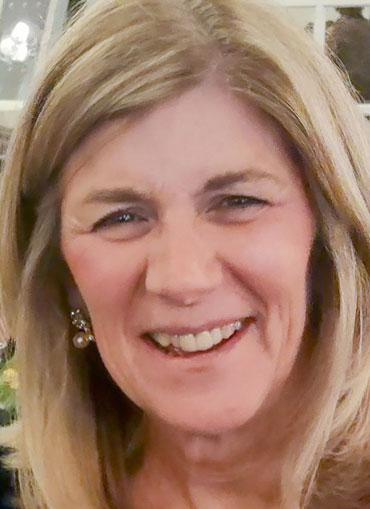By Chris Pries
Guest Column

I recently had the privilege and honor of attending the annual Catholic Medical Association (CMA) meeting in Phoenix, Arizona as both a speaker and participant. The theme was “Be Not Afraid: Courageous Catholic Medicine,” and my talk was titled “The Psychology of Courage.”
Dr. Tim Millea, a longtime friend, was the conference facilitator and he had reached out to me 18 months before the event to discuss the agenda. I had hoped to meet with him mid-summer 2022, in preparation for the conference scheduled for September 2023.
Unfortunately, on June 30, 2022 while vacationing in the Ozarks, I tripped and fell backwards catching my arm on a utility hook and ripping a 6-inch tear from my elbow to my upper arm, tearing through the lymph node and muscle and severing my brachial artery. I experienced a massive hemorrhage and my husband as well as several friends, moved into action.
No trauma physician was in the hospital, but a cardiovascular surgeon was on call and after consultation, I was taken to surgery. As surgery proceeded it became evident the artery was severely damaged. There was a gap between the ends of the artery. A vein from my lower left leg was removed and used as a graft. I was in ICU for three days then sent home to recover.
During my recovery, I had lots of time to think about how serious the injury was and how important the physicians and health care staff are and how their beliefs, behaviors and practices impact the relationship with the patient and subsequently, the journey of healing. By grace and the oversight of my guardian angel, I truly believe my surgeon was a gift from God and I am eternally grateful to him for his care in saving my life and my arm. We spoke of God and prayed together and I’m grateful to him for his vulnerability in sharing his faith with me and our union in thanking God for the best outcome that could have happened.
To be vulnerable and “real” is a courageous act in our culture today, especially in the halls of medical institutions. But what is courage, how do we conceptualize it, and more importantly, can we investigate the antecedents to courageous actions and apply those to the practice of medicine and health care?
The word courage is grounded in western and eastern ancient philosophical traditions. Originally, the great philosophers Socrates, Plato and Aristotle debated the meaning. These early philosophers called it andreia. Although that translates as courage, the ancient meaning of the word is manliness. The ancients considered courage as something that fell within the traditionally masculine aspect of virtue. The display of andreia was seen in the overt actions of soldiers on the battlefield.
The 4th century BC Confucian thinker Mengzi categorized this behavior as da yong, the “great courage,” depicting courage as directed towards morally praiseworthy ends. Through a continuous process of self-cultivation, virtuous people can choose moral action undeterred by any difficulty or danger.
St. Thomas Aquinas also wrote of courage using the Latin word fortitudo. For Aquinas every courageous act involved a willingness to die — and endurance is courage’s defining mark.
Aristotle looked at courage and other virtues and noted something unusual about them. They tended to be a mean between two extremes. Courage is the mean between the extremes of cowardice and rashness. Cowardice is easy to comprehend, it is running away from or avoiding danger or unpleasantness. Rashness is facing danger in a careless way or in a way that masks other intentions.
Aristotle’s analysis conceives courage as active; it assumes the need to act in a decisive way at critical moments. However, courage can also have a distinctively passive quality to it.
We know in many circumstances courage may involve accepting that the problem lies in the “other” and that real courage may involve maintaining one’s inner freedom and self-worth in the face of circumstances beyond our control. Courage to maintain one’s inner freedom and dignity is still a choice.
While the ancient Greeks described courage as a desire to respond to physical danger, contemporary scholars more frequently addressed courage as the commitment to stand up for, or act on one’s ethical beliefs, an essential virtue for all health care professionals today.
Moral courage is a highly esteemed trait displayed by individuals who, despite adversity and personal risk, decide to act upon their ethical values to help others during different ethical dilemmas. These individuals strive to do the right thing, even when others choose a less ethical behavior, which might include taking no action at all. Morally courageous professionals persevere to stand up for what is right even when it means they may do so alone. The goal of morally courageous behavior is to put ethical principles into action and protect ethical values perceived to be at risk.
In part two of this article I will suggest six attributes that may be seen as antecedents to courage.
(Chris Pries is a psychiatric nurse practitioner who has worked at Vera French Community Mental Health Center in Davenport for 48 years. She is a member of St. John Vianney Parish in Bettendorf and serves as a parish health minister.)











